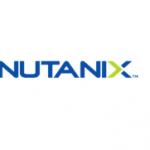Hyperconvergence software player Nutanix has teamed up with Lenovo to offer Lenovo HX Series, hyperconverged appliances that are simple to deploy and have potential to return investment to businesses in less than five months.
The strategic global partnership offers joint-developed hyperconverged appliances, featuring Intel technologies, and ability to support nearly all workloads like enterprise applications, big data analytics, databases and virtual desktops, with improved efficiency and scalability.
First mover advantage
When asked about the challenges they may have in Malaysia from not having first mover advantage over other hyperconverged appliance players like EMC and Dell, Lenovo General Country Manager Khoo Hung Chuan said it was still an opportunity for Lenovo to expand their offerings into the enterprise infrastructure space.
“It is an opportunity for Lenovo to offer new solutions and expand them to current install base of new customers.
He shared about their existing base of System x customers who are also “looking for something that is open and scalable.”
“Customers have been asking us, what’s next?”
Khoo also shared that take up rate of the appliance should be positive and that interest in the solution is also positive.
ASEAN landscape
Lenovo’s Enterprise Business Group Leader, Rajesh Viliyakath said that in the Southeast Asia region, larger enterprises in the small-to-medium size category are interested in this offering, adding also that Lenovo’s System x servers are well-represented across different segments.
Rajesh opined that the hyper converged appliance holds special appeal, because of the definite way that it sizes, configures and deploys workloads. He alluded to customers now actually relooking at IT implementations that are right-sized with mission intelligence for their business needs.
Public cloud aspirations?
Lenovo only has a public cloud located in China at the moment, and when it comes to Lenovo’s own public cloud building or collaboration with service providers and cloud service providers, Rajesh stated, “In Asia Pacific, nothing is concrete at the moment.”









